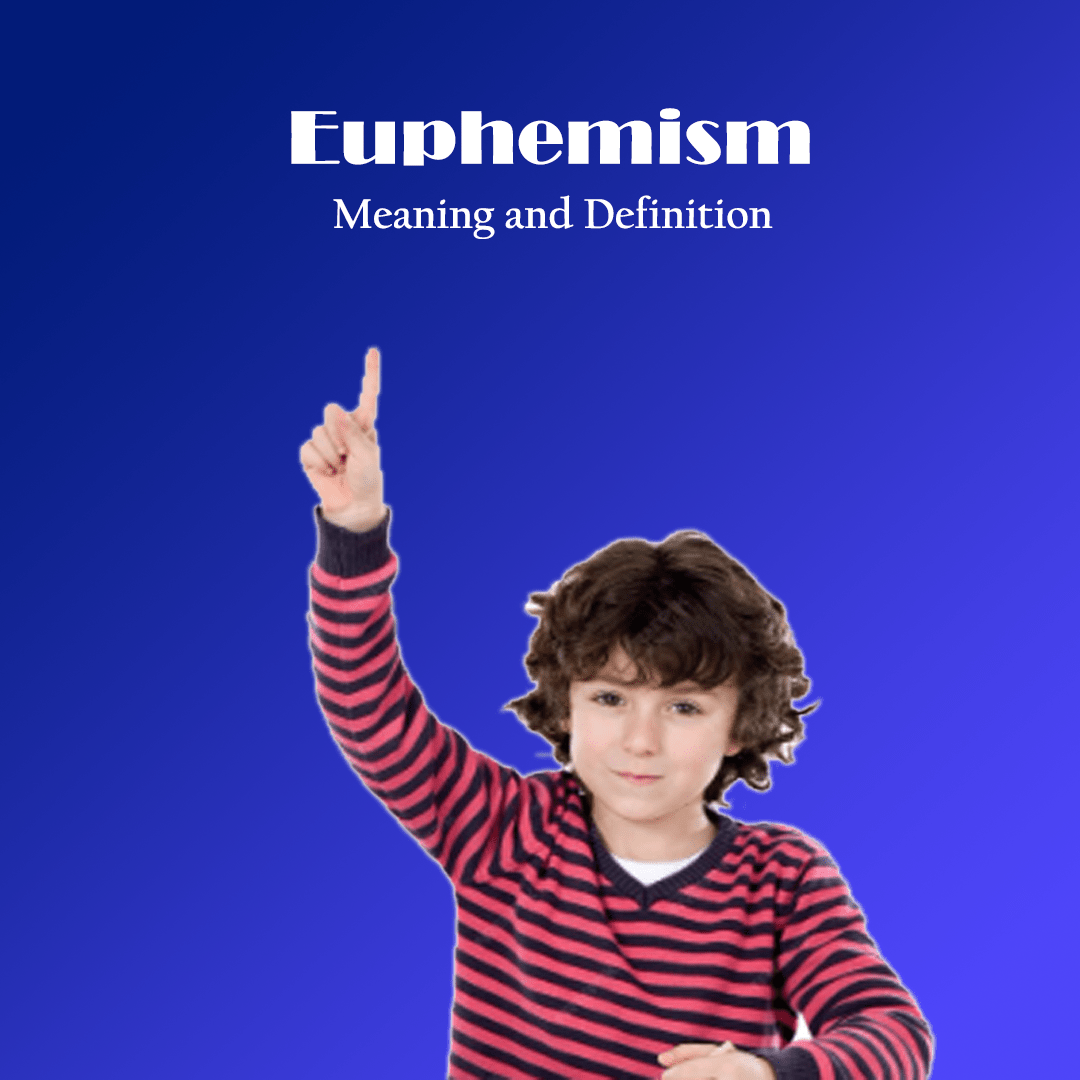Please enter the code we just sent to whatsapp 91-11-46710500 to proceed
Didn't Receive OTP?

Did you ever hear anybody say, He passed away, not He died, or Let go, not Fired? These are not mere polite lines; rather, they are illustrations of an interesting language tool known as euphemism.
In this blog, we will explore what euphemism is, offer a clear definition, share euphemism examples in everyday life, and explain why euphemisms are such an important part of how we communicate. Curious about language, or guessing you should polish your writing and speaking skills, this guide will assist you in learning how to soften hard truths.
Definition of Euphemism:
A euphemism is a polite or mild word or phrase instead of another that might be harsh, blunt, or unpleasant.
Put in simple terms, it is a way of smoothing out offensive things.
Euphemisms are used daily and in many cases even unconsciously. Why? Because the truth can sometimes be too cruel, blunt, or clumsy. Rather than jolting or disturbing others, we use words that appear softer or more acceptable in terms of social courtesy.
Example of When We Use Euphemisms:
Talking about death
Discussing money issues
Appealing to physical appearance.
Explaining job loss
Euphemisms serve to preserve a polite demeanor, to avoid embarrassment, and to facilitate discussion, particularly when it involves formal situations.
Euphemism in Real Life.
Let’s take a look at some easy-to-understand euphemism examples in everyday life. These are examples of how euphemisms can help us discuss sensitive issues in softer language.
1. Dying As opposed to Passing Away.
Direct: Last year, my grandfather passed away.
Euphemism: My grandfather died last year.
Passed away is more gentle and is respectful towards the individual who has died and his/her family.
2. Let Go Instead of Fired
Direct: She lost her job.
Euphemism: She had been sacked.
Sacked or let go is less judgmental and is more business-like, particularly when dealing with business communication.
3. Aging Person as opposed to the elderly.
Direct: He is an old man.
Euphemism: He is a senior citizen.
It isn’t quite as rude and does not cause one to feel embarrassed about their age.
4. Thrifty with the Truth rather than lying.
Direct: He lied to me.
Euphemism: He wasn’t economical with the truth.
This euphemism may be widely employed in formal or diplomatic situations, in which it would be too rude to call someone a liar.
5. Mediocre Facility, Not Prison.
Direct: He served 5 years in jail.
Euphemism: He was sentenced to a correctional center for five years.
It also sounds less harsh and is concerned with the concept of rehabilitation over punishment.
6. Between Jobs and not employed.
Direct: I am unemployed.
Euphemism: I am in the transition period.
This euphemism is not as stigmatizing and hopeful.
7. Go to the Bathroom as an Alternative to using the Toilet.
Direct: I should go to the toilet.
Euphemism: I have to go to the toilet.
Nature’s call is more polite and suitable, particularly in a formal or public environment, and therefore makes the conversation less awkward.
Fun Fact About Euphemisms
Did you not know that euphemisms exist in all languages and cultures? They help individuals cope with taboos and social harmony. What passes as polite euphemism in one society may pass as different words in another society, but the concept still remains the same, to use a better word, to discuss something uncomfortable.
How to Euphemize.
Impeccable knowledge of your audience- In formal writing, euphemisms ensure that the writing is professional.
Watch overuse - Euphemisms may be confusing or sound insincere when overused.
Be natural with it - Add some everyday speech euphemisms so that you can sound polite and friendly.
Example in a sentence:
You can express things like: John is a senior citizen, he has many life experiences, rather than saying he is old.
Understanding what euphemism is and knowing various examples in everyday life makes your communication kinder, respectful, and more effective. You need to write a school essay, make a speech, or even have a polite conversation: a lot of sensitive subjects, euphemisms come to your rescue.
The next time you find yourself having to deliver a hard message, keep in mind the strength of an appropriate euphemism. It allows you to say things in a polite way without making the conversation awkward when using offensive language.
Shape Your Kid's Future with Bambinos Classes | Bambinos.live India's No. 1 English Communication Platform For Kids | Click here to Book a Free Class Limited time offer.